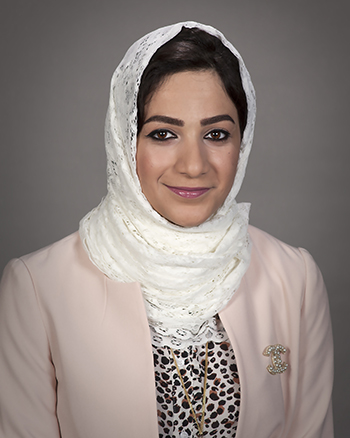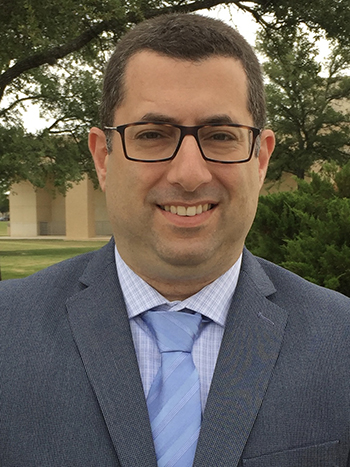CVM Ph.D. Student, Alumnus Establish Arab Toxicologists Association
Story by Dorian Martin

Texas A&M University’s College of Veterinary Medicine & Biomedical Sciences (CVM) Ph.D. student Hadil Al Muhisen and former student Dr. Ziad Naufal were instrumental in establishing the Arab Toxicologists Association (ATA) within the Society of Toxicology (SOT), the international professional toxicology organization, in spring 2019.
Founded in 1961, the SOT consists of scientists from academic institutions, government, and industry around the world and includes numerous groups, many of which are based on countries of origin.
ATA will build on the pharmacology’s and toxicology’s deep roots in the Arab scientific community that stretch back to the 9thcentury.
According to AramcoWorld, the information that circulated in Arabic alchemical manuals at that time was considered some of the best scientific work, and Arab alchemists were known for creating amalgamations and elixirs that used a variety of mineral, chemical, botanical, and animal substances.
However, Arab scientists’ leadership in pharmacology and toxicology has diminished in modern times—and Naufal believes that ATA can respark interest.
“I was always intrigued by the idea of connecting toxicologists of Arab and Middle Eastern origins together since the discipline, in all its aspects, currently is not as widely practiced in the Middle East/North Africa (MENA) region,” said Naufal, who is a board-certified toxicologist for Chevron’s Health, Environmental, and Safety Division in Houston and an officer of the Lone Star SOT Regional Chapter. “I think that creating ATA as a special interest group as part of SOT is a great opportunity for outreach to Arab toxicologists from all over the world.”

ATA will create a network of scientists who can help identify chemicals in the environment that could harm nature and human health. To accomplish this goal, the association plans to develop communication channels, offer professional development opportunities, recognize scientists who have made an impact in toxicology, and provide financial awards to outstanding post-doctoral fellows and graduate students to support their research.
Naufal, who was recently appointed an adjunct faculty member in the CVM’s Department of Veterinary Integrative Biosciences (VIBS), credits Al Muhisen with providing the impetus to create Arab Toxicologists Association.
“I met Hadil last year as part of an engagement with the toxicology graduate students at Texas A&M,” he said. “We talked briefly, and Hadil expressed a very similar interest as mine in starting what became ATA, so I promised that I would support her if she can spearhead the effort. She did, and the rest is history. Bottom line is this wouldn’t have happened without Hadil’s outreach, high energy, and passion.”
Al Muhisen, who is from Saudi Arabia, wants to mobilize Arab scientists to work with scientific colleagues, governmental agencies, and industry around the world to make the world a better place. She also believes ATA will expand opportunities for female scientists in the Arab world.
“If you want to make the world a better place, you need the majority of the world to work together,” she said. “This is one of the major aims of toxicologists—to make the world a better place and also share the ideas how we can help our countries.”
###
For more information about the Texas A&M College of Veterinary Medicine & Biomedical Sciences, please visit our website at vetmed.tamu.edu or join us on Facebook, Instagram, and Twitter.
Contact Information: Jennifer Gauntt, Interim Director of CVM Communications, Texas A&M College of Veterinary Medicine & Biomedical Science; jgauntt@cvm.tamu.edu; 979-862-4216


